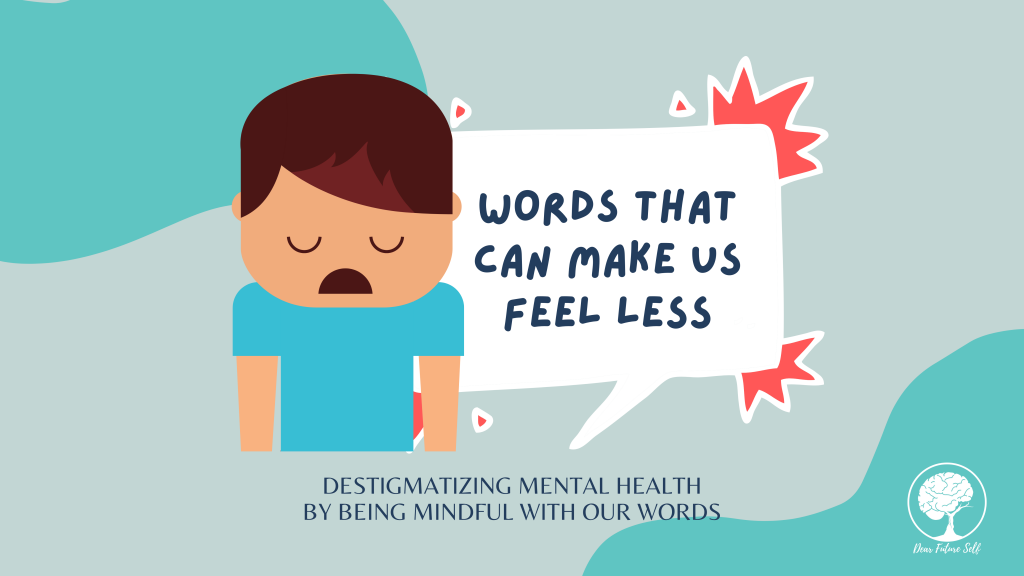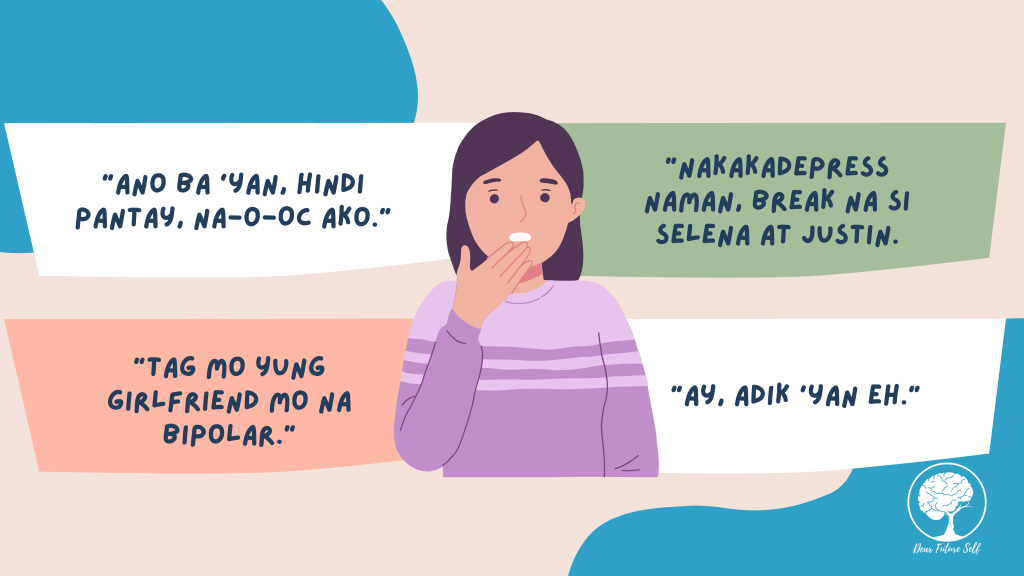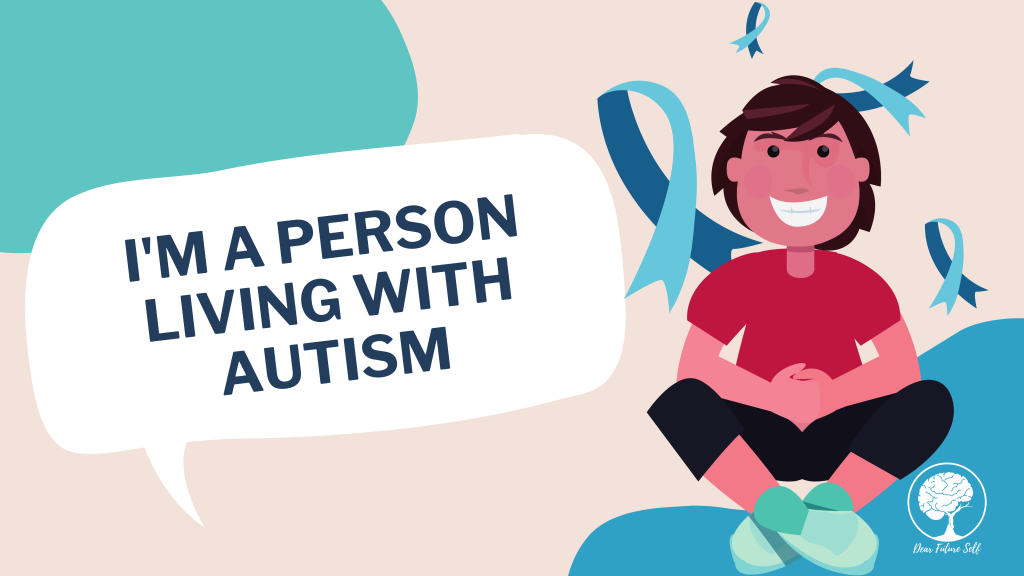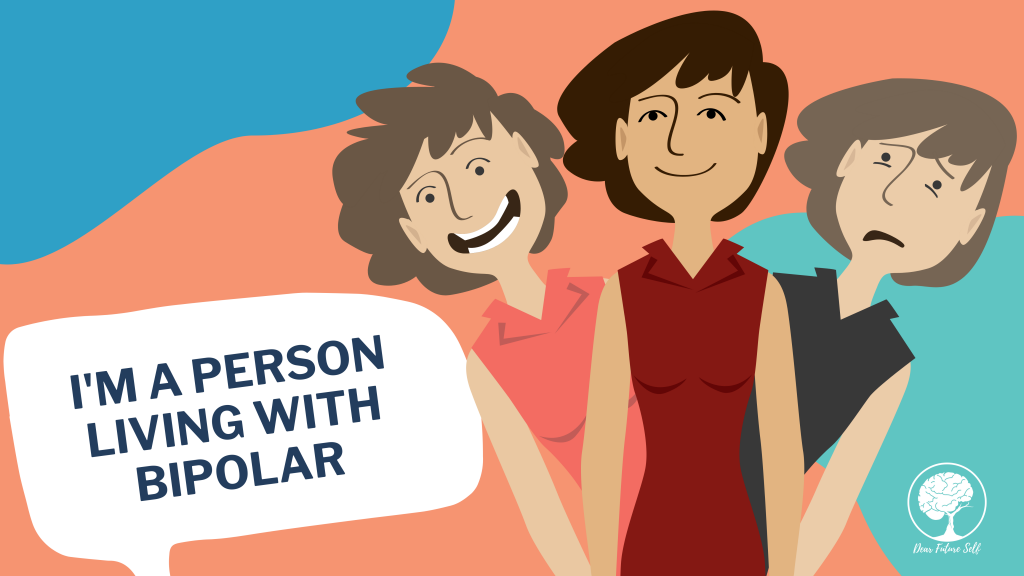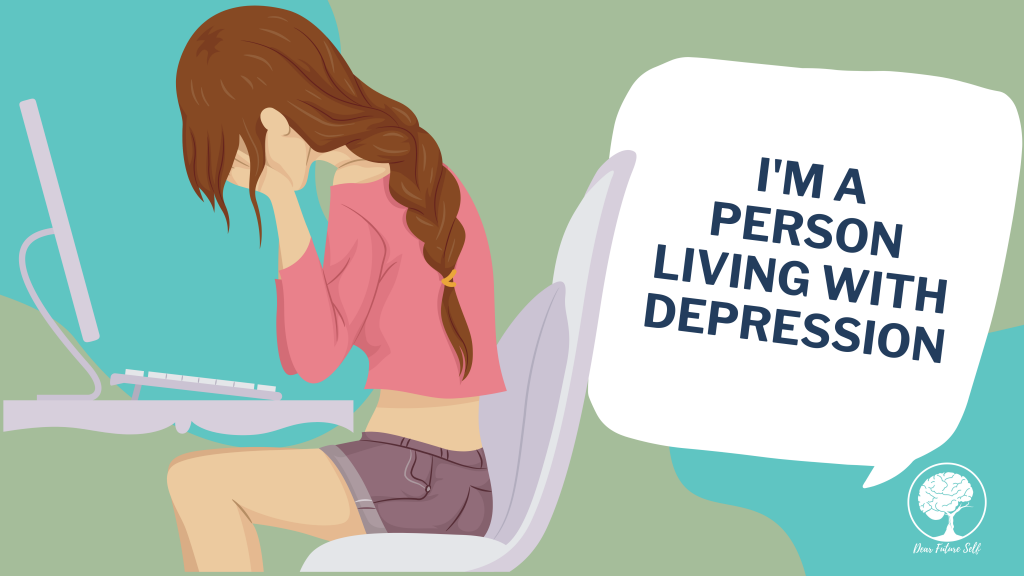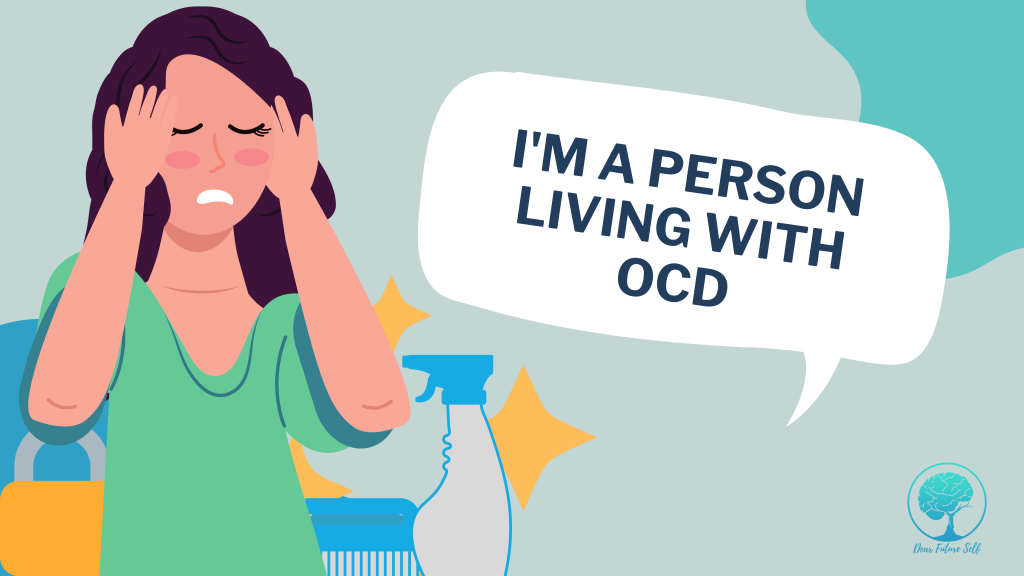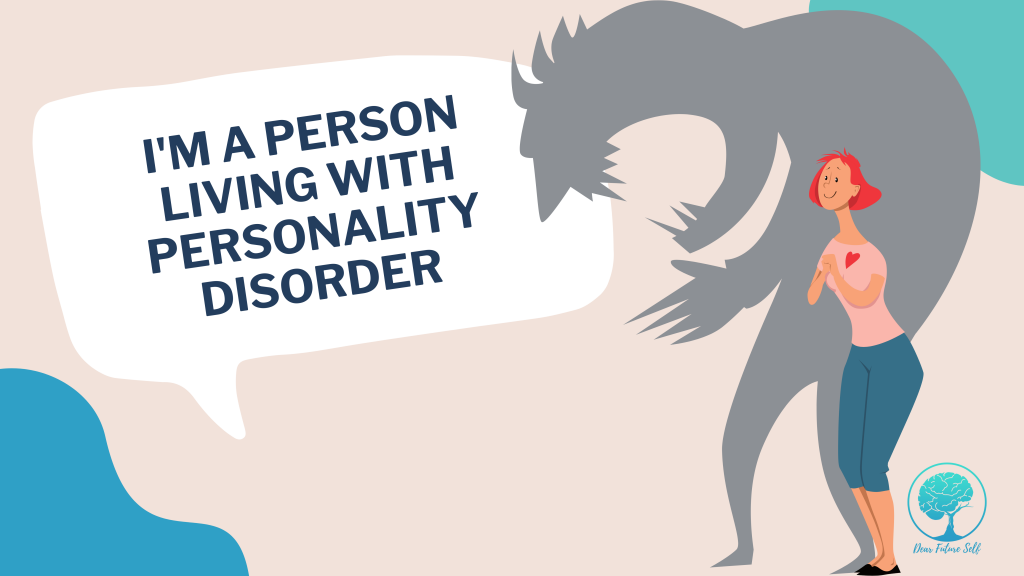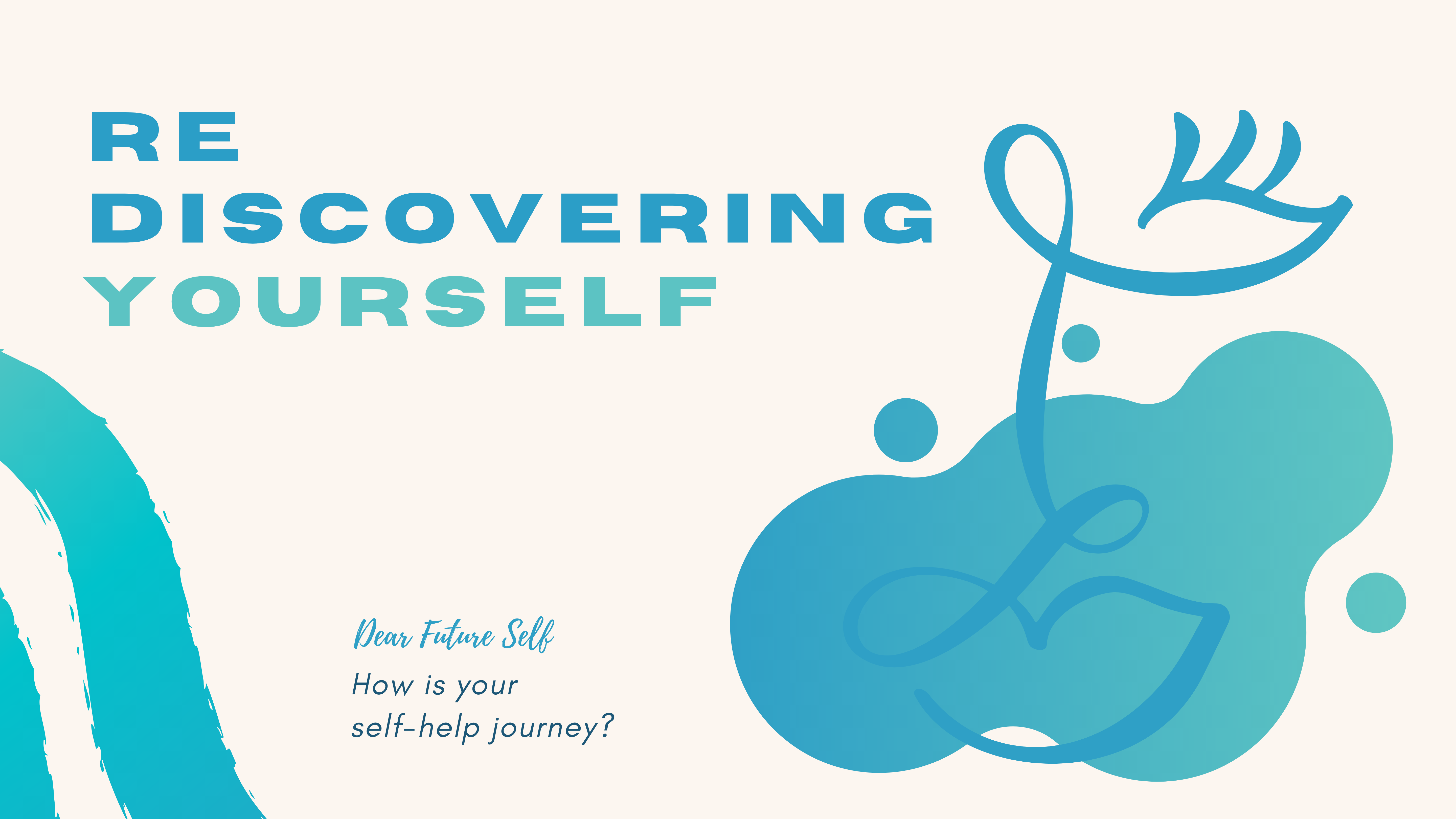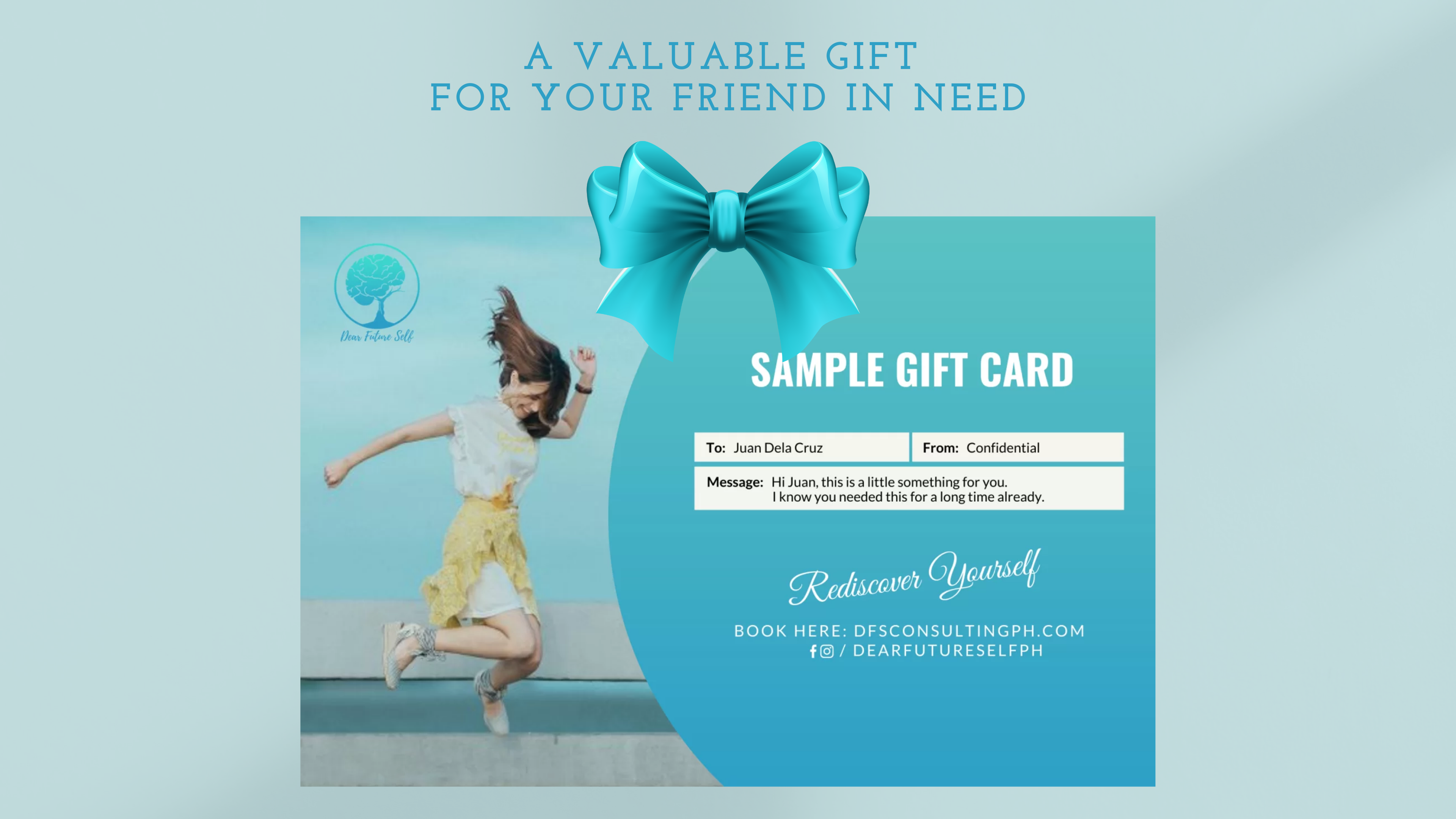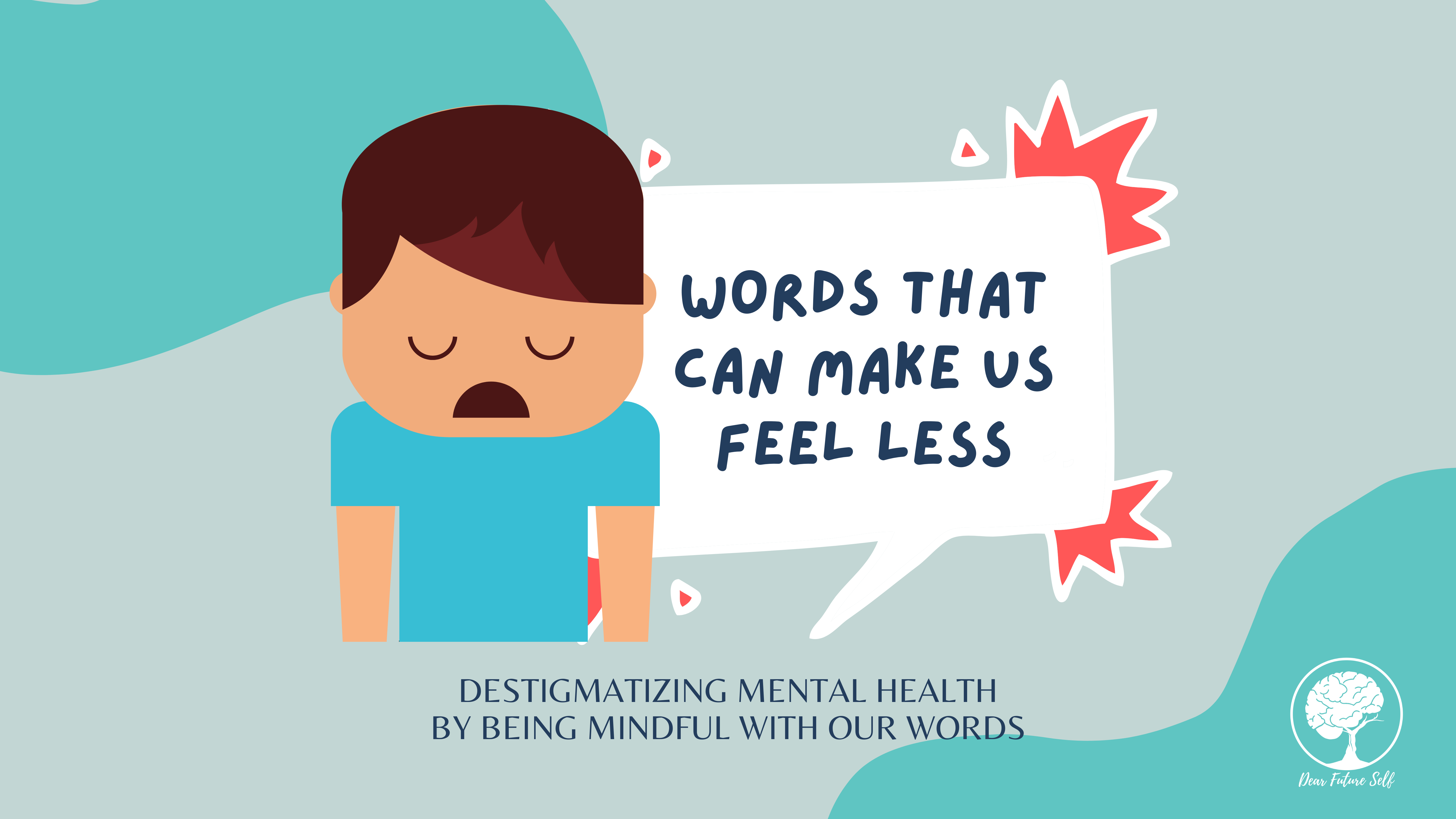
25 Aug Ouch! Words That Can Make Us Feel Less of A Person
Destigmatizing Mental Health by Being Mindful with Our Words
“Ano ba ‘yan, hindi pantay, na-o-OC ako.”
“Nakakadepress naman, break na si Selena at Justin.
“Tag mo yung girlfriend mo na Bipolar.”
“Ay, adik ‘yan eh.”
Have you heard these phrases before? Have you seen social media posts wherein the mental illnesses were used as an adjective, a metaphor or an expression? Well, if you have already encountered the said sentences, then there’s something we should be concerned about.
Let’s start with defining what a mental illness is. Mental illnesses are health conditions involving changes in emotion, thinking or behavior. (Parekh, 2018) Mental illnesses are medical diagnoses that are given by a professional such as Psychiatrists and Psychologists. The use of mental illnesses as adjectives contributes to the stigma of mental health. It somehow causes the reasons why mental health concerns aren’t taken seriously. It’s often much harder to understand the gravity of someone else’s experiences and by using diseases as personality traits, it adds to the misunderstanding (Redkar, 2015).
According to the Philippine World Health Organization Special Initiative for Mental Health, which was conducted in the early part of 2020, at least 3.6 million Filipinos suffer from one or more mental, neurological, or substance use disorders. This is a call for us to be mindful. There’s a big possibility that maybe one of the people we encounter everyday is one of those living with mental illness/es. Choosing the expressions we use is a big help to destigmatizing mental health.
Our word choices contribute to social stigmas that can further marginalize individuals of all backgrounds living with a variety of conditions, illnesses and disabilities (Avila, 2018). What can we do regarding this concern? Let’s try to fix our vocabularies, on how we describe people and on how we express things!
Here’s a list of words we could use when we’d like to describe something instead of using the Mental Illnesses:
Avoid describing people as:
Autistic
Consider instead: hyper-focused
If someone is clinically diagnosed with Autism Spectrum Disorder, they are not “Autistic”. They are “Persons living with Autism”
Avoid describing people as:
Bipolar
Consider instead: rapidly changes opinions, indecisive
If someone is clinically diagnosed with Bipolar Personality Disorder, they are not “Bipolar”. They are “Persons living with Bipolar”
Avoid describing people as/avoid using the word:
Depressed/depressing
Consider instead: sad, upsetting, disappointing, devastating, frustrating, tragic, sad
If someone is clinically diagnosed with Depression, we shouldn’t call them ”Depressed”. They are “Persons living with Depression”
Avoid describing people as/avoid using the word:
OCD
Consider instead: fastidious, meticulous
If someone is clinically diagnosed with Obsessive-Compulsive Disorder, we shouldn’t call them “OC”. They are “Persons living with OCD”
Avoid describing people as:
Psychopath(ic)
Consider instead: wild, confusing, unpredictable, impulsive, reckless, fearless, lives on the edge, thrill-seeker, risk-taker
If someone is clinically diagnosed with Psychopathy, we shouldn’t call them “Psycho”. They are “Persons living with Personality Disorder”
Words are the most powerful weapon. The things we say may affect the people around us. Let us avoid using words that will make others feel less. Being mindful with the phrases we use makes a huge difference. This simple move of selecting the words we use can teach the world on how to value mental health!
Now, what words would your ![]() want to hear from you?
want to hear from you?
References:
Avila, T. (2018, May 2). Swapping Out These Words Can Help End The Stigma Of Mental Illness. Girlboss. https://www.girlboss.com/read/word-choice-mental-illness-stigma
Brᴏᴡɴ, L. X. Z. (n.d.). Ableism/Language. Autistichoya. https://www.autistichoya.com/p/ableist-words-and-terms-to-avoid.html
Parekh, R. (2018, August). What is mental illness? Psychiatry.org; American Psychiatric Association. https://www.psychiatry.org/patients-families/what-is-mental-illness
Redkar, N. (2015, December 19). 3 Reasons It’s Harmful to Use Mental Illnesses as Adjectives and Metaphors. Everyday Feminism. https://everydayfeminism.com/2015/12/mental-illness-metaphors/
YOUR MIND MATTERS: DOH CALLS FOR UNIFIED RESPONSE TO MENTAL HEALTH | Department of Health website. (2020). Doh.gov.ph. https://doh.gov.ph/press-release/YOUR-MIND-MATTERS-DOH-CALLS-FOR-UNIFIED-RESPONSE-TO-MENTAL-HEALTH
Self-Help Corner
Seek Professional Help

Gift Certs & Self-Care Package
Connect with Us


